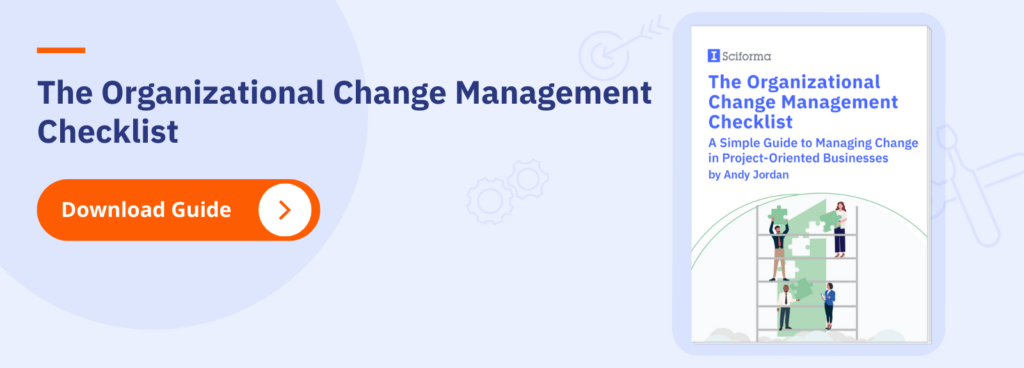- Home
- Blog Center
- The Principles, Benefits, and Importance of Organizational Change Management
The Principles, Benefits, and Importance of Organizational Change Management
What are the Principles of Organizational Change Management?
At the most basic level, organizations only do two things. First, there are the operations that define what the organization does. This includes the manufacturing, sales, marketing, services, and countless other functions that deliver value. Then, there is all the work that is designed to improve those operations. These include the programs, projects, epics, and other structures designed to create innovative new customer offerings, more efficient internal workflows, improved stability, reduced risk, and so on. So what exactly is organizational change management? Put simply, it’s the ability to transition effectively and efficiently from project to operations. The best product, service, process, system, etc. is not going to succeed without integration into project teams’ workflows and acceptance by its user base. Organizational change management therefore focuses on:- Engagement. In other words, ensuring the involvement of all impacted teams, functions, and individuals in the process, that they understand what is happening and why. Impacted groups should be contributing to the change management approach and how change will be implemented.
- Planning. In other words, treating organizational change management like other forms of change management, something that must be planned for with consideration of dependencies, time and effort required, etc.
- Implementation. In other words, carrying out all steps required to make organizational change successful. That may include training, support, coaching, etc. And it requires the ability to stabilize environments before subjecting them to additional change.
- Communication. In other words, ensuring that all stakeholders know and understand expectations of them, how they will be impacted, and so on. It is critical to not only contextualize this communication for each group, but make it relevant and timely, and encourage continual collaboration and feedback.

The Benefits and Importance of Organizational Change Management
Effective organizational change management is a critical skill for project-oriented organizations today. Investments only succeed when they generate a return, and that requires them to not only have effective solutions built by project and program teams, but also assimilate seamlessly into organizational operations.
Change can be disruptive, but when organizational change management is successful it results in:
- A more engaged, motivated employee base who embraces changes as improvements to their environments.
- Solutions that are more likely to achieve the expected business outcomes, improving overall strategic performance and investment returns.
- An environment more capable and willing to embrace change. This allows organizations to implement more change in less time and grow the enterprise.
Delivering these benefits consistently is essential. Gallup recently reported that global employee engagement was just 23%—and that’s a record high! Disengaged or indifferent employees will not welcome and embrace change, and in some cases, they may resist it, creating barriers to organizational success.
When organizational change management is done well, not only are those barriers overcome, but employees feel as though they are part of the solution. In other words, they have a sense of ownership over what is happening in their work environment. That drives engagement and retention up while improving productivity and the capacity for further change.
Managing Change Means Managing People
Organizational change management is also important for the teams delivering and implementing the solutions, which we discuss further here. Namely, playing a part in managing change creates a stronger connection between the people doing the work and the people the work will impact. In turn, that allows for a greater understanding of how to develop solutions more capable of delivering necessary business benefits. These relationships also contribute to the need for effective communication and support the development of implementation plans that will be optimally effective.
Curious to know more about Organizational Change Management? Explore Sciforma’s comprehensive Organizational Change Management Checklist:







Andy Jordan
Andy Jordan is President of Roffensian Consulting S.A., a Roatan, Honduras based management consulting firm with a strong emphasis on organizational transformation, portfolio management, and PMOs. Andy is an in-demand keynote speaker and author who delivers thought provoking content in an engaging and entertaining style. He is also an instructor in project management-related disciplines, including PMO and portfolio management courses on LinkedIn Learning.